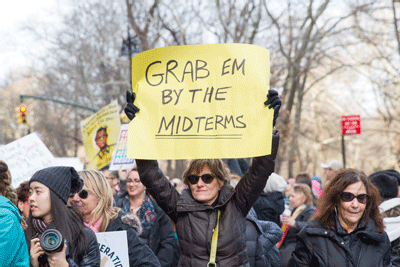Earlier this month, the Senate announced its two-year budget deal. It contains a healthcare provision that many are touting as a victory for American seniors. The reform aims to close the so-called “donut hole” coverage gap in the Medicare Part D drug benefit by shifting more of the program’s costs to drug companies.
But that provision is a gift to insurers — not to patients. The policy could end up raising costs for seniors on Part D, some of our most vulnerable patients. It must be eliminated from the deal.
First implemented in 2006, Part D allows Medicare seniors to buy subsidized prescription drug coverage from private insurers. Beneficiaries can choose from a variety of different coverage offerings suited to their particular prescription needs. But all plans follow the same structure: After hitting a deductible, patients pay a coinsurance on the price of prescription drugs. If a drug costs $100 a month, and a patient’s coinsurance is 25 percent, he or she would pay $25.
After total drug spending reaches a specific limit — $3,700 in 2017 — patients fall into a coverage gap or “donut hole” as it has become known. In this phase, seniors generally pay 40 percent of the cost of brand-name drugs. That gap ends once out-of-pocket costs reach a certain level — $4,950 in 2017 — after which catastrophic coverage takes over.
The donut hole was always supposed to be temporary. Under current law, the gap gradually phases out so that seniors will be responsible for only 25 percent of a brand-name drug’s price in the donut hole starting in 2020. Of the remaining 75 percent, drug manufacturers will cover half, while insurers will pay 25 percent.
Unless the Senate’s budget deal becomes law. It would change this formula by forcing drug companies to shoulder the full 75 percent of a drug’s cost in 2020, letting insurers off the hook entirely.
It’s hard to see this change as anything but a giveaway to the insurance industry. One thing is for sure — the new formula won’t help seniors afford their drugs. Once fully implemented, the policy will encourage insurance companies to accelerate drug spending for patients with already high costs.
Once a beneficiary’s drug spending passes the donut-hole limit, after all, insurers’ share of the costs will drop to zero. So from the point of view of Part D plan providers, the faster an individual’s drug costs rise, the better.
This unintended consequence likely will affect seniors with chronic diseases the most, as their drug costs are already high.
In other words, the Senate just struck a deal that benefits insurance companies at the expense of America’s sickest seniors.
Sally C. Pipes is President, CEO, and Thomas W. Smith Fellow in Health Care Policy at the Pacific Research Institute. Her next book “The False Promise of Single-Payer Health Care” will be published by Encounter in March 2018. Follow her on Twitter @sallypipes.
